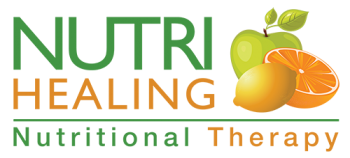The healing power of Herbs - March 2011
The healing power of Herbs
Herbs do more than just adding depth or flavour to food, for many people throughout the world herbs are the medicines they depend upon to stay healthy.
Before the discovery of modern pharmaceuticals many countries throughout the world relied on herbs and there are still countries today, which use herbs regularly to help heal many conditions.
Doctors are discovering that many herbs work as well as drugs for relieving common conditions, and for a very simple reason. For example the active ingredients in herbs maybe virtually identical to the chemicals found in drugs. Let us take aspirin - there is a compound called acetylsalicylic acid, which eases pain, lowers fever, and reduces inflammation. Now before there was aspirin many people made tea from Willow bark. Willow happens to contain a compound called salicin, which has many of the same effects as aspirin. It is not just 'simple' drugs that have herbal counterparts, many prescription drugs resemble (or are actually made from) herbs, an example of this is the heart drug Digitalis, which contains compounds similar to those found in foxglove.
From plants to modern drugs
Researchers today use modern equipment to discover which herbs are most effective for treating a condition but original research by the herbalists would observe animals in the wild to see which leaf, bark or berries they turned to whenever they were ill. Over the years herbalists and doctors become pretty knowledge about which herbs worked best for different conditions - headaches, infections, etc.
However by the middle of the twentieth century, scientists were more interested in what the herbs contained than the herbs themselves. With the advancement of laboratory chemistry, it became possible to isolate and purify the chemical compounds from plants to make pharmaceutical drugs. These new drugs offered an advantage over the leafy predecessors; it was possible to make thousands of pills, each with the exact same strength. Convenient and quick to take, rather than spending hours searching for herbs and preparing them - hanging them to dry, extracting the oils or brewing them in tea.
It wasn't because herbs were ineffective that people quit them but because it was reliable, cheaper and sexier to pop a pill.
Going back to the basics
One advantage of using herbs is that they may tend to cause fewer side effects than modern drugs. Drugs are highly concentrated, which is why taking one tiny pill or capsule can produce such dramatic results. Herbs are much less concentrated, you don't get as much of the active ingredient in your body at one time, so you're less likely to have uncomfortable reactions.
A few tips on growing herbs in the Kitchen
- Many herbs are easy to grow, on the windowsill in pots or in the garden in tubs or borders. In order to preserve their properties they have to be dried and stored properly.
- When drying leaves or flowers, tie small bunches of herbs together and hang them upside down in a dry, well-ventilated area such as an attic or large pantry. To prevent them from getting dusty, you can hang the herbs inside a paper bag with holes punched into the side for air to circulate. Be careful not to crush the herbs, as this will cause the precious oils to dissipate.
- When drying roots, cut them into thin pieces, thread them on a length of string and hand them to dry.
- When drying seeds, hang the entire plant upside down in a paper bag and allow drying. As the plant dries, the seeds will fall to the bottom of the bag.
- To keep dried herbs fresh, store them in sealed jars in a cool, dark place. If they are properly stored they will retain their potency for about a year or more.
List of herbs and their healing benefits
If you are pregnant, taking medication or have serious health problems be sure to talk to your doctor before using medicinal herbs.
- Chamomile - Indigestion, gas and easing sore throats - use as a tea.
- Echinacea - Immune system - Tincture, or make a tea with boiling water on dried herbs
- Fennel - Hot flushes, menopausal problems, helps settle stomach - Crush seeds and make a tea.
- Feverfew - Helps to relieve migraines - Eat 2-3 fresh leaves a day
- Garlic - Helps with blood pressure, cholesterol and heart disease - Eat 1-6 gloves daily.
- Licorice root - Helps relieve menopausal symptoms (mood swings/hot flushes), helps to heal sore throats and ulcers. - Make tea by boiling water over ½ tsp finely
- Chopped roots, do not use for more than 4 weeks, avoid if you have high blood pressure.
- Milk thistle - good for the liver - capsules or tincture
- Oregano - good for parasitic infections - add to cooking leaves or powdered herbs.
- Peppermint - Eases stomach upsets and reduces gas - make into a tea.
- Rosemary - digestion and stimulates appetite - Make a tea out of finely chopped leaves.
- Valerian - Good for insomnia - Boiling water over 2tsp. finely chopped roots to make a tea.
- Willow bark - helps to ease pain, fever and headaches - make into tea with finely chopped bark.
